MAY
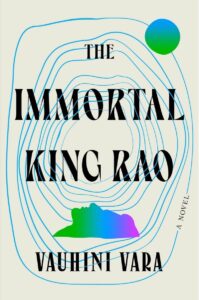
Vauhini Vara, The Immortal King Rao
W.W. Norton, May 3
Vauhini Vara’s debut novel follows Athena, a young woman accused of killing her father—a tech mogul who grew up on a Dalit plantation and became the most powerful person on earth through the force of his corporate-led government. The book grapples with the effects of capitalism as well as technological development on politics, families, and memory itself, and it seems sure to be an engrossing read. –CS

Lillian Fishman, Acts of Service
Hogarth, May 3
By May, we’re going to be in dire need of some sexy fiction (birds, bees, long Covid winter, etc.) and this is the debut to which I shall turn. It’s picking up all the right comparisons—Sally Rooney, Ottessa Moshfegh, Joan Didion—and the right blurbs—Raven Leilani, Gary Shteyngart, Sheila Heti—but it’s actually Edmund White’s endorsement that has me the most curious: “This fascinating novel, which will be read as a defense of libertinism, paradoxically turns out to be a book of exquisite moral refinement and almost intimidating elegance,” he writes. Clearly I will be reading that. –ET
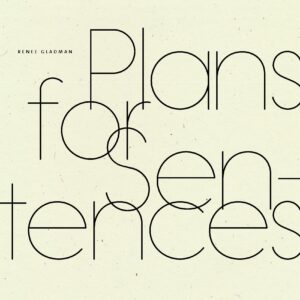
Renee Gladman, Plans for Sentences
Wave Books, May 3
Text and drawing, drawing and text all collapse into one another in Gladman’s new interdisciplinary collection. Pushing the boundaries of the visual and the textual, Gladman considers the ways in which the two practices can invent and reinvent one another, offering a limitless and circular plunge into the idea of poetry. Indeed, like most of her work, language feels endless and infinite, lingering even after we put the book back on the shelf. –SK
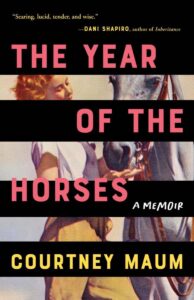
Courtney Maum, The Year of the Horses: A Memoir
Tin House, May 3
I was sold at Courtney Maum and “horses,” TBH, but pleasantly surprised to learn about the other threads in this one: Maum’s experience of reckoning with depression, plus historical portraits of other horseback-riding ladies. Saddle up, we’re going riding. –ES
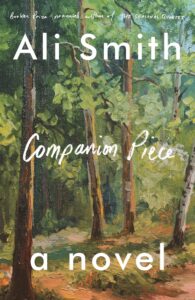
Ali Smith, Companion Piece
Pantheon, May 3
The first time I fell in love with Ali Smith was in college, when a professor handed me his copy of The First Person and Other Stories (on loan; he was very clear!) and said it was required reading. I had never seen stories move like that. She writes with an unshakeable confidence. She runs to the bizarre. She is distinctly experimental. She has proven her dedication to the experimental time and time again, most recently with her Seasonal Quartet series, which she wrote in real-time, dipping into world events like #MeToo and Brexit as they were unfolding. Even the pandemic catches up to us in her fiction. In Companion Piece, Ali Smith asks: What’s next? The future may be uncertain, but one thing is for sure: I will follow Ali Smith to the ends of the earth. –KY
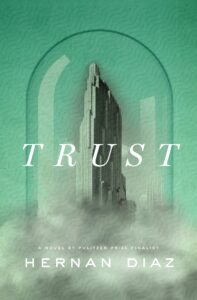
Hernan Diaz, Trust
Riverhead, May 3
Hernan Diaz’s 2017 debut novel, In the Distance—an unconventional western about a lonely Swedish immigrant traversing America’s frontier in the 1800s—was one of the great indie press success stories of recent years. Released by small-but-mighty Minneapolis publishing house Coffee House Press, In the Distance won a bevy of major literary awards, was a finalist for the Pulitzer Prize and the PEN/Faulkner Award, and, most significantly, was named one of the 20 Best Novels of the Decade by the team here at Lit Hub. All that is to say: expectations are high for Diaz’s follow-up, a literary puzzle box about the mystery surrounding a wealthy Manhattan couple during the Roaring Twenties and Great Depression. –DS
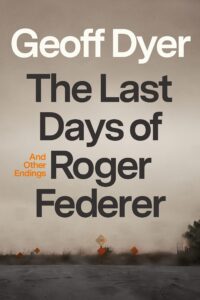
Geoff Dyer, The Last Days of Roger Federer: And Other Endings
FSG, May 3
Geoff Dyer is excellent at writing toward a thing while writing around it, and looking at a subject through his own cracked lens—please see his masterpiece Out of Sheer Rage, a biography of D.H. Lawrence in the form of a book about failing to write a biography of D.H. Lawrence—so I am very interested to see what he will do here. The Last Days of Roger Federer is not a biography (failed or otherwise) of the tennis player, but rather an examination of the twilight days of famous artists, writers, musicians and athletes Dyer has loved, intertwined with his own experience of aging. I have very high expectations, and hopes. –ET
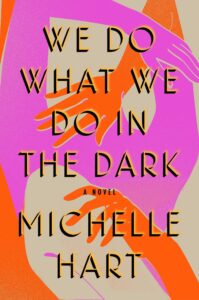
Michelle Hart, We Do What We Do in the Dark
Riverhead, May 3
In Michelle Hart’s full-length debut, a college freshman grieving her mother meets a much older, married woman at the gym and begins an affair with her. Years later, she grapples with the effects of that formative relationship. –WC

John Waters, Liarmouth
FSG, May 3
A “perverted feel-bad romance” from the beloved Baltimorean pope of trash? A revenge road-trip novel by the man who gave us Cry-Baby, Cecil B. Demented, and one of the all-time great Simpsons cameos? Waters’ debut novel is still (somewhat) shrouded in mystery, but the brief description available makes it sound pretty damn tantalizing: “Marsha Sprinkle: Suitcase thief. Scammer. Master of disguise. Dogs and children hate her. Her own family wants her dead. She’s smart, she’s desperate, she’s disturbed, and she’s on the run with a big chip on her shoulder.” Sign me up. –DS
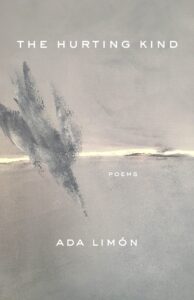
Ada Limón, The Hurting Kind
Milkweed Editions, May 10
Ada Limón needs no introduction, but I’ll put one here just in case: A National Book Award finalist and an NBCC Award winner, she is the author of the heartstopping poetry collections Bright Dead Things and The Carrying. In The Hurting Kind, she touches on the pain of living in the world today (the wounds of the natural world, the pandemic between us), but it is not all sorrows. There is a levity to some of these lines. You don’t have to look hard to see the joy and the small celebrations of the things that bind us to one another. The Hurting Kind is a book composed of our connective tissue. –KY

Marissa Moss, Her Country: How the Women of Country Music Became the Success They Were Never Supposed to Be
Henry Holt, May 10
Contemporary country music is awash in oversized pick-up trucks and flag-draped barns, dudes in honky tonks and girls in cowboy boots—so much of it sounds like Foghorn Leghorn squeezed into the body of an 18-year-old super-patriot who just wants to fight and fuck because it’s Friday night. According to Marissa R. Moss’s Her Country, in 2021 only 16 percent of country music played on the radio was by women, despite the fact we’re now blessed with the brilliance of singer-songwriters like Kacey Musgraves, Maren Morris, and Brandi Carlile. Though women regularly pack arenas and release massive crossover hits, it’s still men who get the airplay and the awards… So what the hell is going on? Her Country is a fascinating look at the weird isolationism of contemporary country. –JD
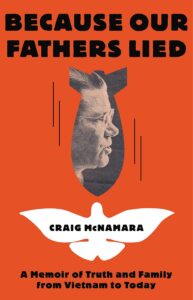
Craig McNamara, Because Our Fathers Lied: A Memoir of Truth and Family, from Vietnam to Today
Little, Brown, May 10
This is the story of the Vietnam war though a single family—but an unusual one: Craig McNamara’s father was Robert McNamara, John F. Kennedy’s Secretary of Defense and the architect of the Vietnam War. Craig himself failed his draft board physical, joined anti-war demonstrations, and drove a motorcycle across Central and South America before deciding to become a walnut farmer in Northern California. This should be a personal and enlightening look at a period that still fascinates after so many years. –ET
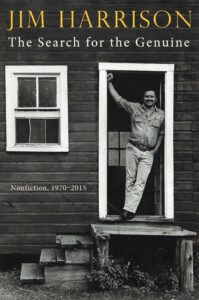
Jim Harrison, The Search for the Genuine: Selected Nonfiction
Grove, May 10
For the first time in 30 years, Grove is publishing a collection of the legendary Jim Harrison’s nonfiction essays and articles. Featuring some pieces never before published, this is the writer in all his mastery: taking on topics such as Buddhism, grouse hunting, and the US/Mexico border. Harrison may be gone, but his writing speaks to a force larger than life: it continues to teach and inform years later, which is all a writer could ever really dream of. –JH
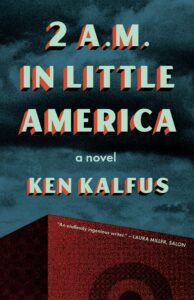
Ken Kalfus, 2.A.M. in Little America
Milkweed Editions, May 10
For some reason, Ken Kalfus is American literature’s best-kept secret: his ideas are weird, his writing is limber, his ironic eye is gimlet, and yet no one seems to talk about him. Maybe that will change with this novel, set in an immigrant-intolerant future that sounds all too plausible. But either way, I’ve been waiting for a new novel from him since the 2013’s insane, high-concept Equilateral, and I can’t wait to dig in. –ET
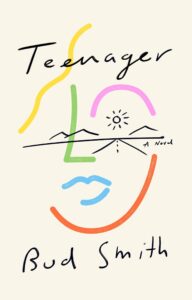
Bud Smith, Teenager
Vintage, May 10
I like the short stories of Bud Smith. I also like the Twitter account of Bud Smith, who works in heavy construction. We could use more novelists who don’t work in publishing or academia (I’m not suggesting those aren’t “real” jobs, but they offer a very particular and limited perspective of life in America). What I’m saying, really, is that we could use more writers like Bud Smith. Teenager is a lovestruck, cross-country road-trip novel following a couple of ill-starred delinquents on the run from the olds; and though we have plenty of novels that tell that story, this is the only one we have from Bud Smith. And that’s good. –JD

Maggie Shipstead, You Have a Friend in 10A
Knopf, May 17
My first Shipstead, Great Circle, was a highlight of my 2021 reading, so while I’m catching up on her backlog, I’ll also be adding her debut story collection to the rotation. Slated subjects include a tragic honeymoon, a love triangle in Montana, and escape from a cult. –ES
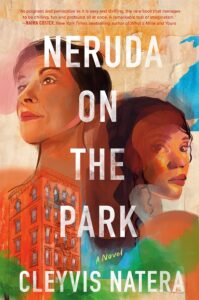
Cleyvis Natera, Neruda on the Park
Ballantine, May 17
Natera’s debut novel follows the Guerreros, who live in Nothar Park, a largely Dominican neighborhood of New York facing gentrification. Moving from Eusebia, a community elder who schemes to prevent luxury condos from encroaching on the neighborhood to her daughter Luz, an associate at a Manhattan law firm, the novel is a tapestry of family, love, sacrifice, and loss. –SK
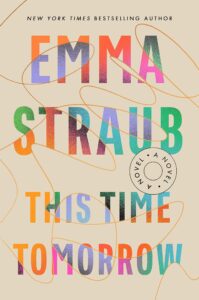
Emma Straub, This Time Tomorrow
Riverhead, May 17
I’m a sucker for a time travel plot, and Emma Straub’s latest novel, in which a 40-year-old woman returns to the day of her 16th birthday, promises to play to Straub’s strengths: Warm, poignant family stories heavy on charm and compassion. Mostly, it sounds like tremendous fun. Yes, please. –JG
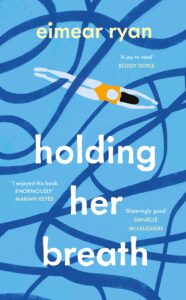
Eimear Ryan, Holding Her Breath
Custom House, May 17
In Eimear Ryan’s Holding Her Breath, Beth Crowe, a former competitive swimmer (whose Olympic dreams are shattered by a breakdown), falls in with a literary crowd who are enamored with her grandfather, the late, beloved poet Benjamin Crowe. A secret relationship, a family’s tragic past, and a woman learning to be herself are all the makings of a great story, and I’m looking forward to reading this Irish writer’s debut. –EF
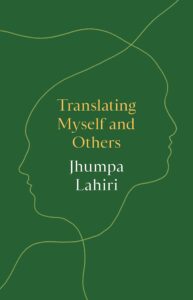
Jhumpa Lahiri, Translating Myself and Others
Princeton University Press, May 17
In recent years, Jhumpa Lahiri has been a champion of Italian writing and of literary translation itself as she chronicled her process of falling in love with the Italian language—which, she has said, made her “a tougher, freer writer.” The journey has taken her to Rome (where she has lived and worked for about a decade) to working on translations of contemporary and classic Italian literature, and, eventually, to writing a novel, Dove mi trovo, in Italian and translating it herself into English. In this book, Lahiri shares her thoughts on translation and language along with her translation of Ovid’s Metamorphoses. –CS
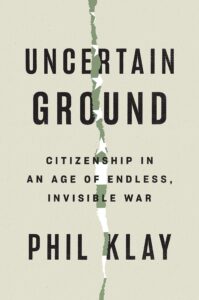
Phil Klay, Uncertain Ground: Citizenship in an Age of Endless, Invisible War
Penguin Press, May 17
In a series of essays written over the last ten years, Phil Klay, the author of the National Book Award-winning Redeployment, and Missionaries, examines the relationship (or lack thereof) of the American military to the average American citizen, reckoning with the invisibility and the importance of our ongoing wars. –ET
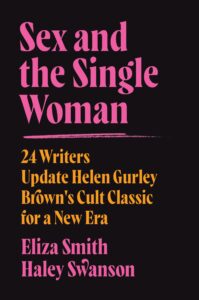
Eliza Smith and Haley Swanson, eds., Sex and the Single Woman: 24 Writers Update Helen Gurley Brown’s Cult Classic for a New Era
Harper Perennial, May 17
Revisiting and revising Helen Gurley Brown’s Sex and the Single Woman for its 60th anniversary, Lit Hub’s own Eliza Smith and Haley Swanson pay homage to Brown, while reckoning with the gaps in her work. From contraception and abortion (which the publisher had banned) to sexual consent, queer and trans identities, dating with disabilities, and more, the anthology covers the varied ground and (denied) joys of singledom. –SK
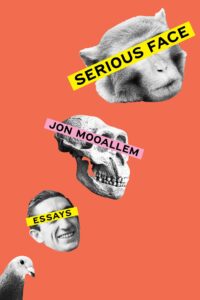
Jon Mooallem, Serious Face: Essays
Random House, May 17
Longtime New York Times writer Jon Mooallem’s new essay collection promises to be whimsical, perceptive, and generous, spanning a wide variety of topics from a global society dedicated to cloud appreciation to the philosophical pursuits of a triple-amputee doctor in San Francisco to a multi-million-dollar bird-breeding scam run by a farmer called The Pigeon King. Pigeon King alone has me sold on the book. –WC
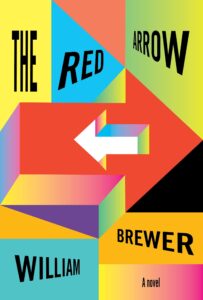
William Brewer, The Red Arrow
Knopf, May 17
In poet William Brewer’s debut novel, a once-promising young writer, suffering from depression, saddled with debt, is asked to ghostwrite a soon-to-be Nobel Prize-winning physicist’s memoir. But when the physicist vanishes, everything is threatened. Then, when the writer is asked to take a large quantity of magic mushrooms in an effort to cure his depression, the novel takes readers on a journey through art, memory, space, and time. The Red Arrow is an exploration of the human psyche. –EF
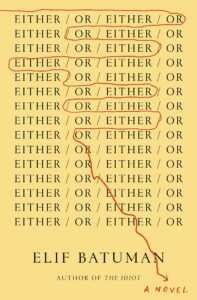
Elif Batuman, Either/Or
Penguin Press, May 24
Literary novels so rarely get sequels, in the strictest sense, but this year they’re out in force. Batuman’s latest picks up where her deeply enjoyable 2017 novel The Idiot left off, with Selin now a sophomore at Harvard, trying to untangle all that has happened, and all that could. Besides, Kierkegaard/Elliott Smith vibes will always bring me to the table. –ET
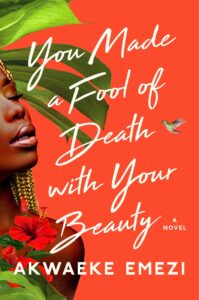
Akwaeke Emezi, You Made a Fool of Death With Your Beauty
Atria, May 24
Akwaeke Emezi is one of the most prolific writers working today. The author of Freshwater, Pet, The Death of Vivek Oji, and (most recently) Dear Senthuran is back—this time with a love story. You Made a Fool of Death With Your Beauty centers on Feyi, an artist who has been grieving the death of her great love for the past five years. An attempt to move on has brought her a wild summer in which her dreams seem to be coming true. Her art career is moving forward, and she’s dating “the perfect guy.” But there’s always a catch, isn’t there? In this case, the catch is the way she feels when a certain someone else walks into the room… You Made a Fool of Death With Your Beauty is a portrait of a woman caught between her past and her future. It asks the hard questions about what we’re willing to do to get to the next chapter of our lives. I will be eagerly awaiting pub day and, until then, listening to that glorious Florence + the Machine song, on repeat. –KY
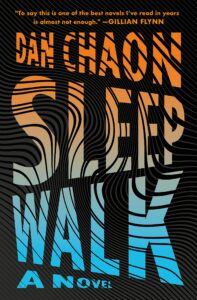
Dan Chaon, Sleepwalk
Henry Holt, May 24
Dan Chaon’s latest is a road trip novel about a “good-natured henchman” sounds like an absolute romp, which I figure we’re all going to need a little more of in 2022. Plus, it already has accolades from both Gillian Flynn and Kelly Link (who describes it as “slapstick of the sinister”) which is intriguing enough for me to pick it up. –ET
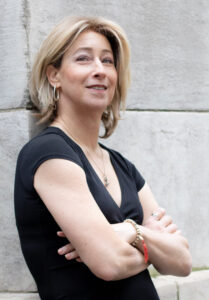
Diana Goetsch, This Body I Wore: A Memoir
FSG, May 24
In 2018, Diana Goestch published a truly incredible essay about teaching William Zinsser to write poetry in The New Yorker. Now we have her memoir, This Body I Wore, in which Goetsch gives a full account of her trans life: from childhood, to becoming a beloved high school teacher, chronicling the crossdressing subculture of ‘80s and ‘90s New York, to her late transition and becoming part of the trans community. An important and beautiful memoir. –EF
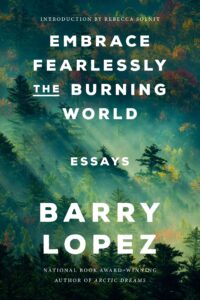
Barry Lopez, Embrace Fearlessly the Burning World: Essays
Random House, May 24
In a career spanning decades of chronicling the natural world, Barry Lopez connected his readers with the planet that sustains them, drawing wisdom from the indigenous communities with whom he spent extensive time as well as wildlife, plants, and the landscape. His many years as a nonfiction writer—of books like Arctic Dreams, which won a National Book Award, Horizon, and Of Wolves and Men—took him to terrain from the Arctic tundra to the deserts of East Africa, where he, with insight and compassion, documented the nuances of a changing planet and our relationship to it. Embrace Fearlessly the Burning World pulls together new writing from just before his death in December 2020 along with previously published work. –CS
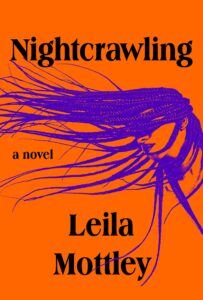
Leila Mottley, Nightcrawling
Knopf, May 24
This debut novel from the 2018 Oakland Youth Poet Laureate—written when she was just 17—tells the story of a young woman forced to become a “nightcrawler” in order to provide for her brother and an abandoned child she cares for. Based on a true story of injustice and the broken American social system, it comes complete with blurbs from Ruth Ozeki, James McBride, Tommy Orange, and Ayana Mathis, who calls it “fierce and devastating, rendered with electrifying urgency by this colossal young talent.” –ET
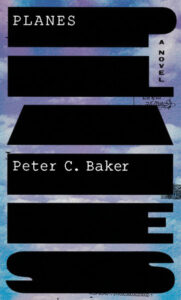
Peter C. Baker, Planes
Knopf, May 31
A story of two women: Amira is a recent convert to Islam living in Rome whose husband is imprisoned at a Moroccan black site; Mel, in North Carolina, is a former activist who tries to get the conservatives of her small North Carolina town to support her school board initiatives while she tries not think about the affair she’s having. As these two stories unfold thousands of miles apart, they resonate with each other, like two sides of the same coin. Baker’s novel is an assured debut and the announcement of a new, bold voice. –EF
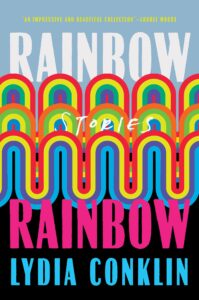
Lydia Conklin, Rainbow Rainbow
Catapult, May 31
I’ve only read the title story of this debut collection, which centers on the lives of queer, trans, and gender-nonconforming characters, but just that is good and funny enough—especially the dialogue—to have me anticipating the full package come May. –ET
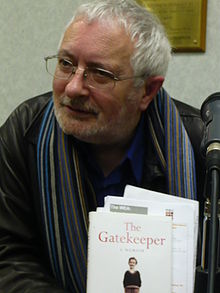
Terry Eagleton, Critical Revolutionaries: Five Critics Who Changed the Way We Read
Yale University Press, May 31
This year online, I saw readers litigate the role of the critic: should book reviews be nice, or mean? Who are book reviews for? What is the responsibility of a reviewer? In Critical Revolutionaries, Terry Eagleton examines the post-WWI lives and work of five critics: T.S. Eliot, I.A. Richards, William Empson, F.R. Leavis, and Raymond Williams. Their work merged the worlds of academia and popular culture, and shaped our conversations around the social and ethical function of literary criticism. If you care about “the state of [criticism or writing or what-have-you] today,” Eagleton provides useful context. Plus, if you’re like me, writers on writers is basically gossip, which is the best kind of text. –WC

David Sedaris, Happy-Go-Lucky
Little, Brown, May 31
Three words: new David Sedaris. His many previous books, including the most recent, Calypso, brought us comedic stories from Sedaris’ world involving the eclectic cast of characters in his family, his travels between New York and France, and, in recent decades, his life as a famous humorist. This collection—named for a recent New Yorker piece in which Sedaris explored the funnier points of conversation from his father’s final days—promises a similar offering from him. –CS



